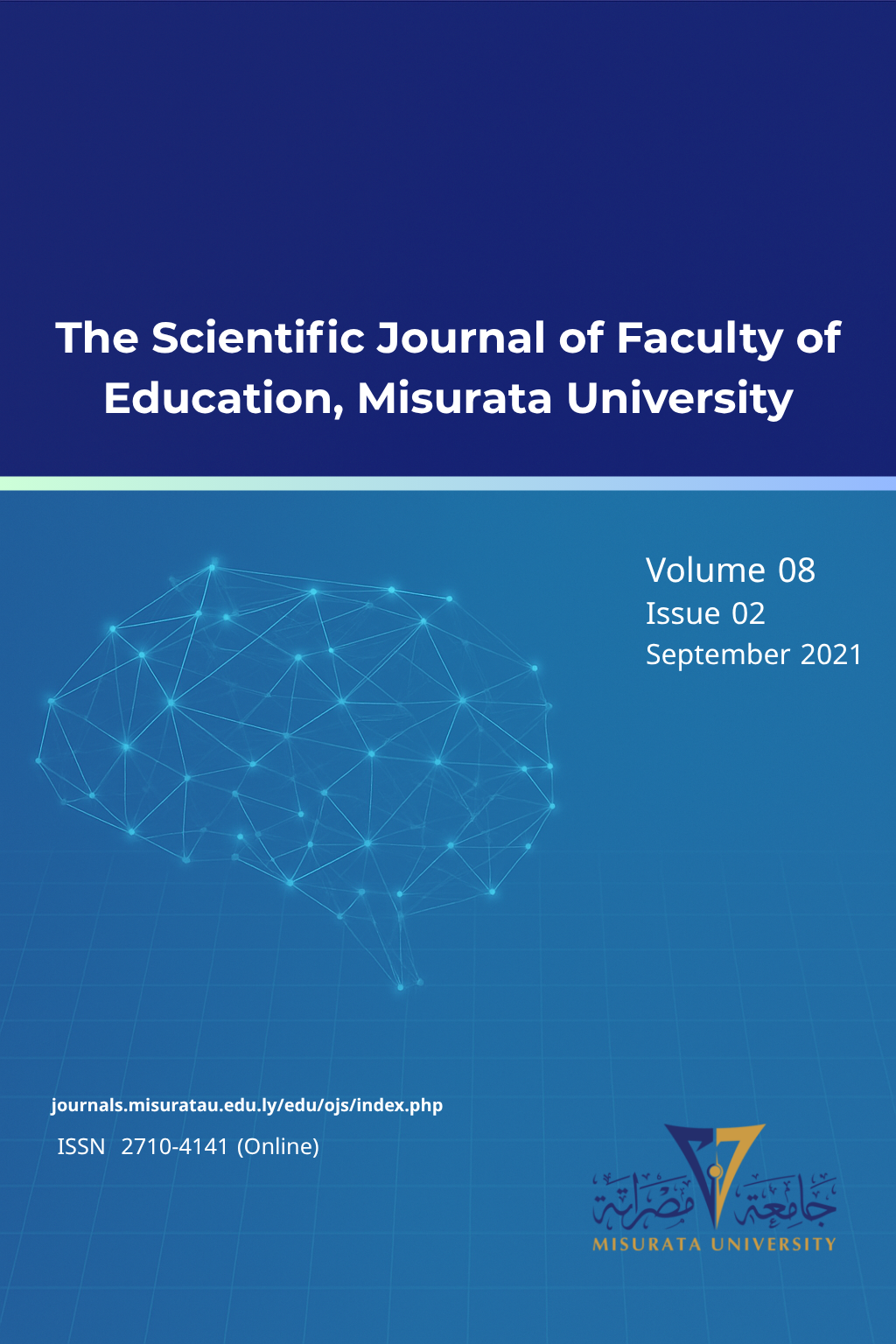in the Language Classroom: An Analysis of Libyan University Learners' and Teachers' Perceptions of and Beliefs about Autonomy and How They Might Impact on Learner Behavior
Keywords:
autonomy,, conceptions,, beliefs,, learner,, teacherAbstract
Abstract:
In view of the fact that language learners hold different beliefs about
language learning, this paper aims to explore teachers' and learners'
perceptions of and beliefs about learner autonomy. It also sheds light on the
extent to which their beliefs are congruent with their behaviour in the
classroom, referring to some research findings which provide insight into the
impact of learner beliefs on learner behavior, and how they may promote or
obstruct learner autonomy. A series of focus group discussions were conducted with a number of students and teachers, randomly selected from
the English Department, College of Education, University of Misrata, Libya.
The data revealed that there are two types of beliefs. The teachers and most
of the students (first type) perceived autonomy as learner responsibility and
engagement in the decision-making process. They justified the absence of
autonomy from their classrooms as a consequence of many obstacles and
needs of learners, which could clearly affect their behaviour and classroom
practices. The other some of learners (second type) expressed their negative
attitudes toward autonomy and believed in the dominant role of teacher who
is perceived as the only maker of decisions. This type of learner has
demonstrated a strong impact of learner beliefs on learner behaviour, as this
could be undoubtedly extracted from the learners' responses. According to
this variation of beliefs, teachers should take into account the different types
of beliefs and learner, and interpret them into teaching strategies. Besides,
due to the fact that the students at the Faculty of Education are assumed to be
qualified as teachers after graduation, it is essential to gradually change those
negative beliefs about autonomy, because their teaching strategies in the
future will be influenced by their beliefs and, hence, they are not likely to
lead to an autonomous learning environment.










